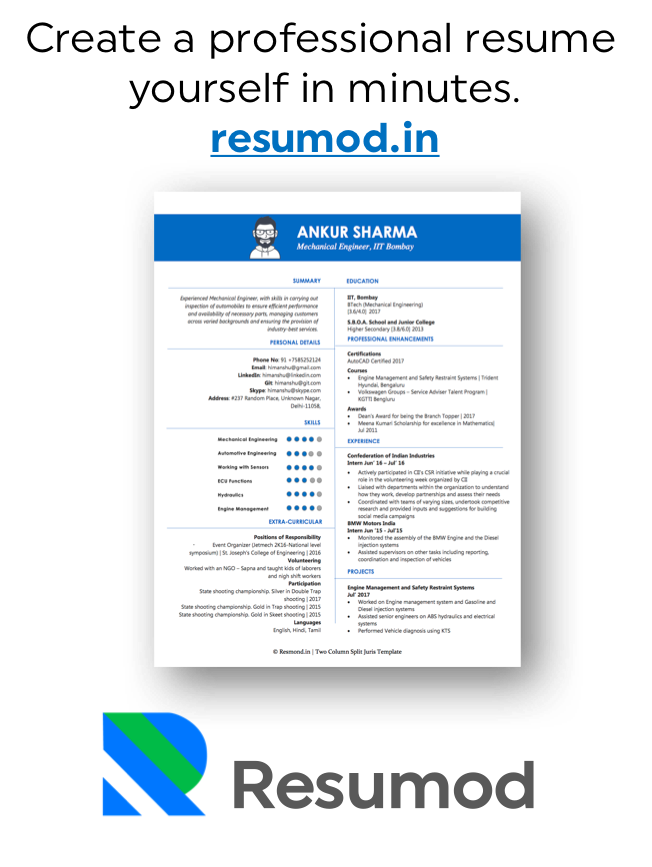“Career planning is a lifelong process…”
What do you want to do in life? Where do you want to be? What kind of a job do you want to do? These are the kind of questions which trouble us the most, especially at the outset of our professional careers. But if we keep in mind a few simple points, career planning becomes a not so difficult task. Below are some tips that can help you in your career planning process:
1. Do what you enjoy
First, sketch out a list of your abilities and acquired knowledge. Then categorize them into what you are good at and enjoy doing vs. what you are good at but do not enjoy pursuing so much. Take also into account your aptitude (things which you will be able to learn quickly if you are not good at now), attitude and lifestyle to understand what your new occupation will require of you. Think about if you would be happy doing the tasks demanded by your new job. Then, take a decision on what you path you would like to take.
2. Correlate your interests to your career related skills
When you make a list of your abilities, list out those skills which are mostly in demand and could most favourably land you a job. Identify those skills which you would want to offer to your employer. Also, identify those skills which need brushing up, and start straight away.
3. Identify a career direction
Think of the future – 5 years from now. Will you want to continue doing this or would you like to go for higher education or change careers (let’s say from a technical role to a managerial one)?
4. Research occupations
Research is the most important part of any process. Find out more about the nature of the jobs that interest you, such as educational requirements, salary, working conditions, future outlook, and anything else that can help you determine the best career for you. Use resources such as career workshops, school career service centres, Internet resources, libraries, employment service departments, career fairs, etc.
5. Gain practical experience
Evaluate your occupational choices and gain practical experience through internships, trainings, relevant summer employment, volunteer work, or campus activities.
6. Talk with people whose occupations interest you
Set up personal meetings or telephonic conversations with people who you think are in occupations which excite you. Discuss the nature of their work. You will learn a great deal about your new career and will be better informed when choosing a career direction.
7. Prepare a career portfolio
Start collecting your work samples, resume, recommendations, references, transcripts and other tools which you require for a job application.
8. Begin preparation for a job search
Before embarking on a new career search, you should learn how to prepare resumes and cover letters specifically designed for a new career or career change. Additionally, since you need to practice identifying and communicating your skills to the employers, you should start preparing for interviews as well.
9. Determine the best way to market yourself
Treat your job hunt as a marketing campaign. You need to sell yourself, sell your candidature to your prospective employer. If you are fresh out of college, you should highlight your relevant skills for the employer to see. If you are experienced, your career change strategy should include repositioning your resume to highlight your relevant accomplishments, using your network to generate job leads, and developing effective interview skills.
10. Determine what skills employers want and update yourself about marketing trends
Keep editing/updating your resume with skills which the market and employers are looking for. Keep yourself updated through job advertisements and HR emails you receive. Don’t forward the same resume to each and every employer. Instead, edit your resume for each employer and focus on the skills she is looking for and highlight those above everything else.
11. Expand your horizons
Do not limit your search to looking for careers only in growing industries. What is hot today may not be hot tomorrow, and there is usually always strong competition in these industries. Research careers in emerging technologies or areas which are yet unexplored. You may end up with a better role and even a better pay check in many cases!
12. Learn new skills
If you do not possess skills required in the industry, start preparing. Join training institutes, workshops, attend conferences, use the Internet. Make yourself ready for your new job.
13. Decide which employers to contact
Once you have researched the companies you are interested in working for, determine which companies offer the best potential for career advancement and which companies have positions open in your field. Contact these employers and send them your resumes yourself or through consultants.
14. Start planning now
If you are looking for a job change, stop procrastinating. Begin your job search before your attitude affects your performance and you put your job in jeopardy. Also, if you resign in time you will take good references with you and keep your image untarnished with your present employer.
15. Discuss career choices with people you know
Talk to friends, parents, teachers, and career counsellors. Brainstorm with them; tell them about your interests and skills; sometimes they may be able to think of possible career choices that you were not able to identify.
16. Narrow down
After all of the researching, interviewing, exploring, and assessing it is time to focus on the specific careers that maximize the combined areas of your interests, skills and abilities.
17. Look for new career ideas in all areas of your life
Make brainstorming a part of your career search and inculcate a sense of creativity in whatever you do. This will help you not just in job search, but everywhere! Think of new ideas, do things differently, break your routines. Read a different newspaper or magazine. See a different kind of movie. Go visit a library or museum. New ideas can come from anywhere. You might end up with a brilliant idea to start a business, rather than search for a job!
18. Be Patient
Be patient and be realistic in your approach. Things do not happen overnight. Always keep an open mind, be yourself in interviews, listen to other people’s advice, and do the necessary work en-route to your new career.



